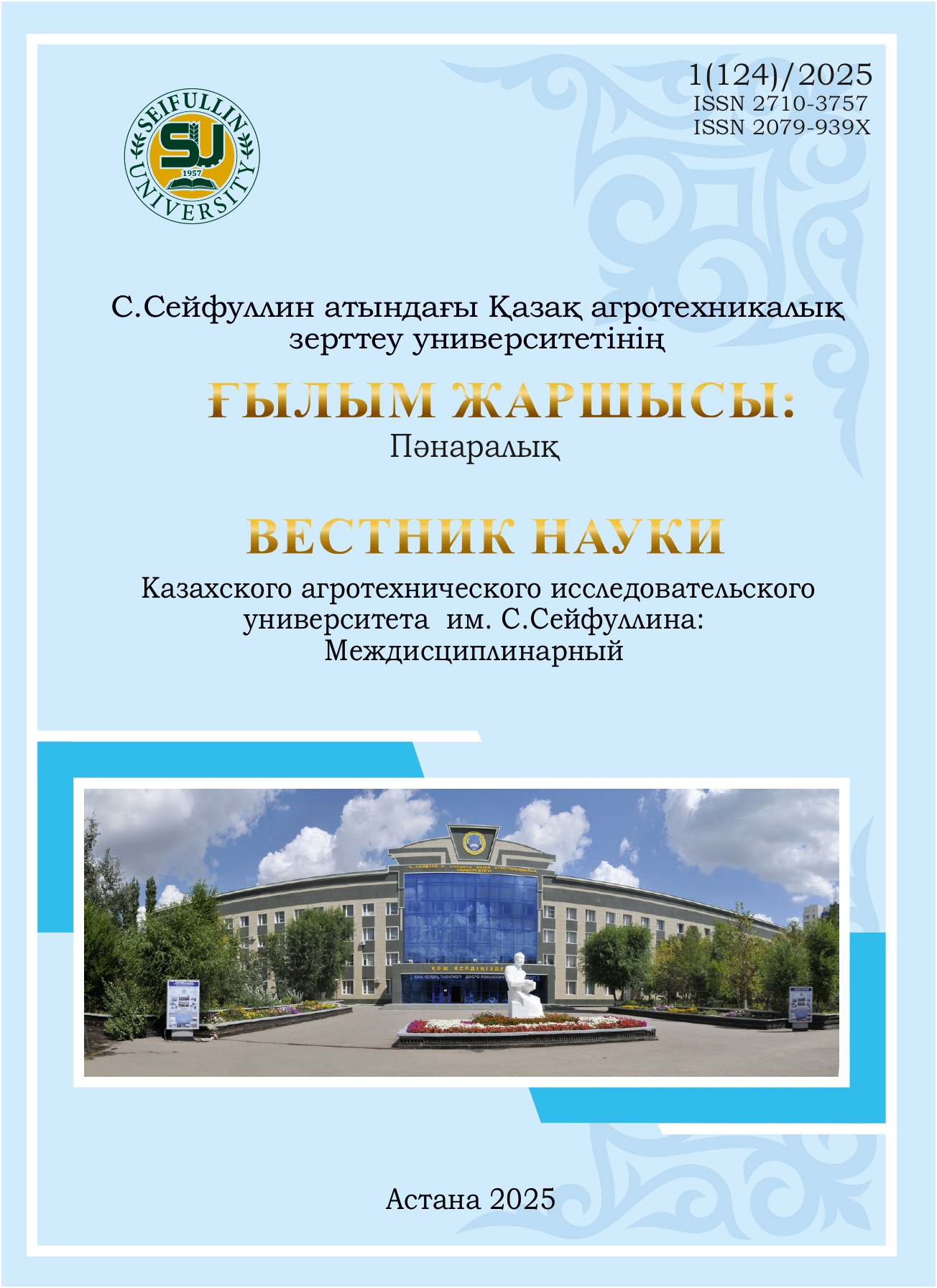Salt-tolerant microorganisms isolated from coal and their ability to stimulate wheat germination and growth
DOI:
https://doi.org/10.51452/kazatu.2025.1(124).1827Keywords:
culture filtrate; growth stimulation; microorganism strains; salt-tolerant microorganisms.Abstract
Background and Aim. Kazakhstan has significant reserves of brown coal, which makes it an important source of humic substances that can be used for the production of fertilizers and soil ameliorants. The aim of this study was to isolate microorganisms from coal waste for the development of organomineral fertilizers to enhance soil fertility and increase crop yields.
Materials and Methods. This study describes the isolation and identification of bacteria, fungi, and actinomycetes from low-grade coal from the Kumiskuduk and Kuznetsk coal deposits in the Karaganda region. A total of 28 microbial isolates were obtained. The isolates that demonstrated stable growth on Burke's nutrient medium containing 1% sodium chloride were selected for further analysis: Bacillus firmus №2, Microbacterium ginsengiterrae №4, Microbacterium ginsengiterrae №5, Brevundimonas vesicularis №11, Brevundimonas nasdae №12, Brevundimonas vesicularis №19, Pseudomonas mandelii №25, Streptomyces parvus №26, Streptomyces parvus №27 and Brevundimonas vesicularis №28.
Results. Laboratory experiments demonstrated that treating wheat seeds with metabolites derived from Bacillus Firmus №2, Microbacterium ginsengiterrae №4 и Brevundimonas nasdae №12, Brevundimonas vesicleis №19, Pseudomonas mandelii №25, Streptomyces parvus №27 and Brevundimonas vesicleis №28 resulted in higher germination rates and increased germination energy compared to the control. Additionally, strains Bacillus firmus №2, Microbacterium ginsengiterrae №4, Brevundimonas nasdae №12 and Brevundimonas vesicularis №19 stimulated wheat seeding growth by 8.4–12%, and strain Brevundimonas vesicularis №19 specifically increased root length by 5.8% compared to the control.
Conclusion. Strains Bacillus firmus №2, Microbacterium ginsengiterrae №4, Brevundimonas nasdae №12 and Brevundimonas vesicularis №19 are recommended for the development of biopreparations aimed at the bioremediation of saline soils and as plant growth stimulants for cereal crops.

